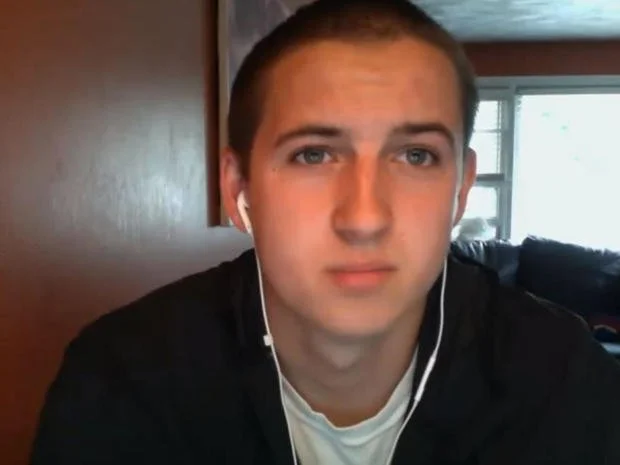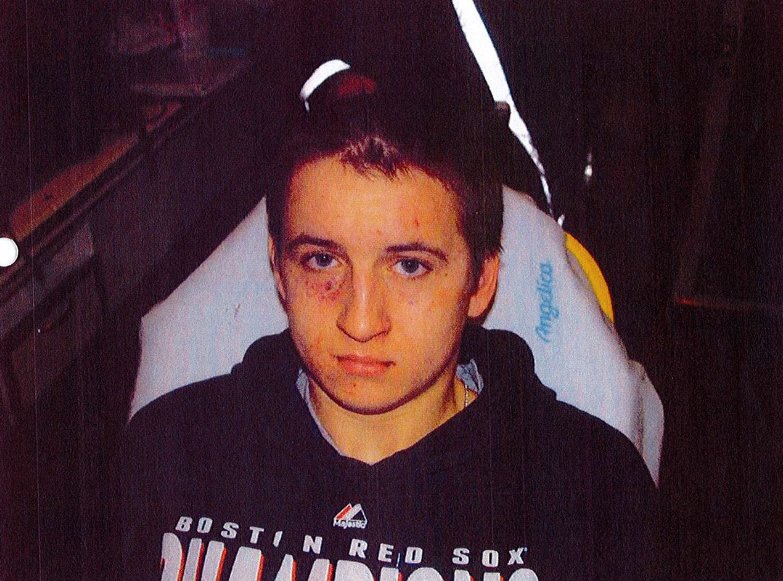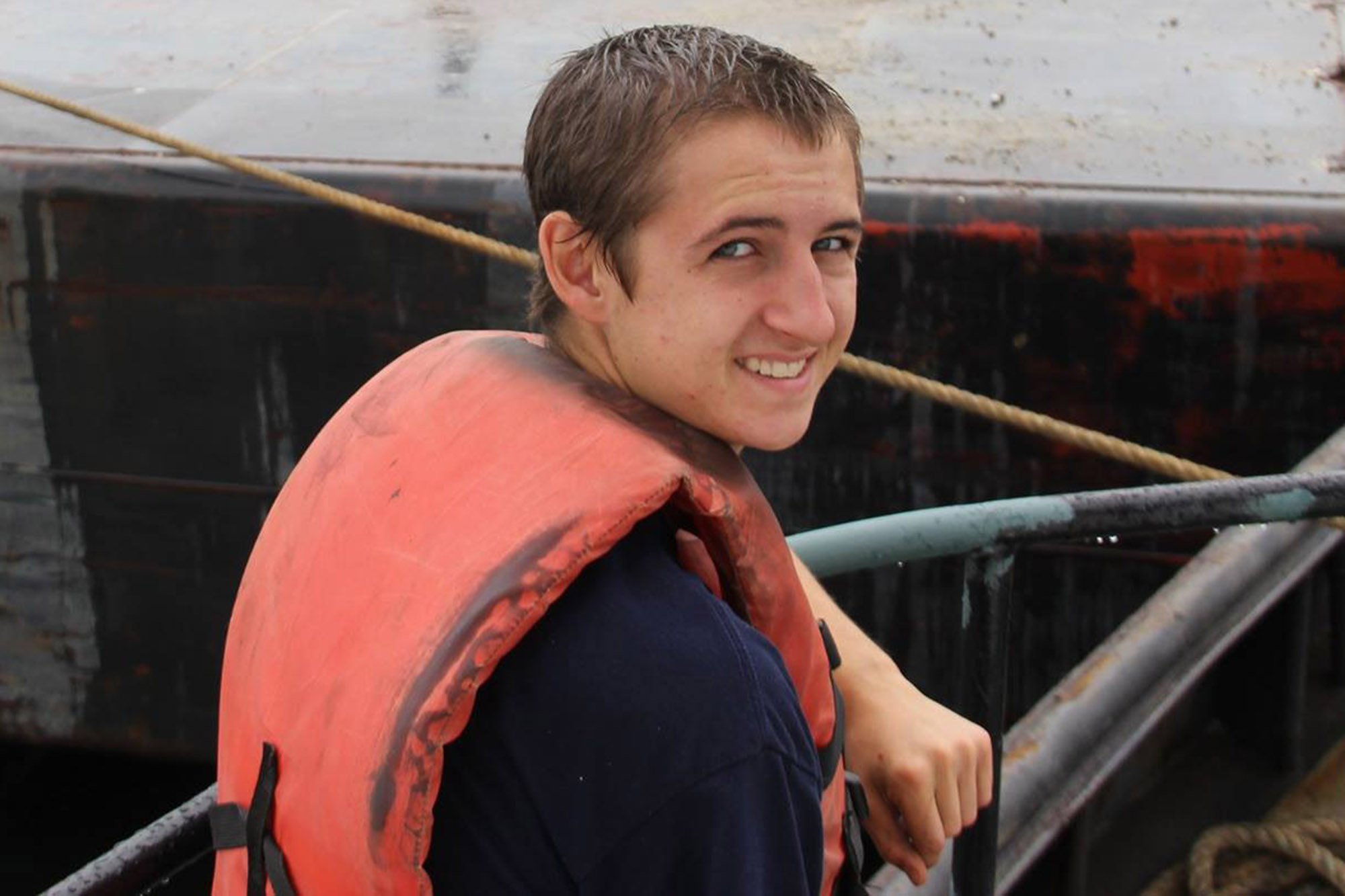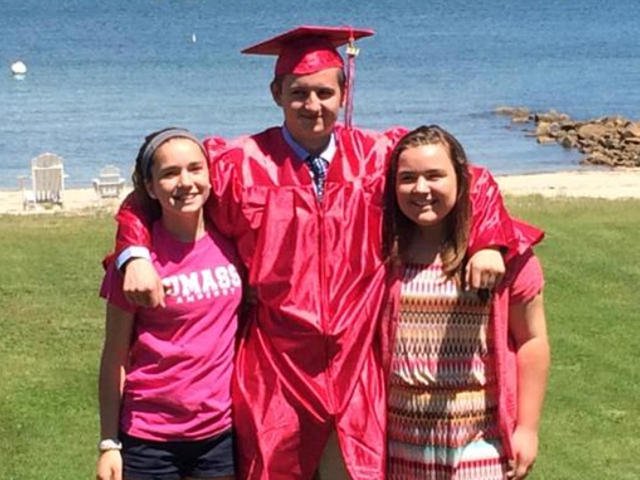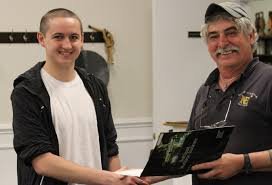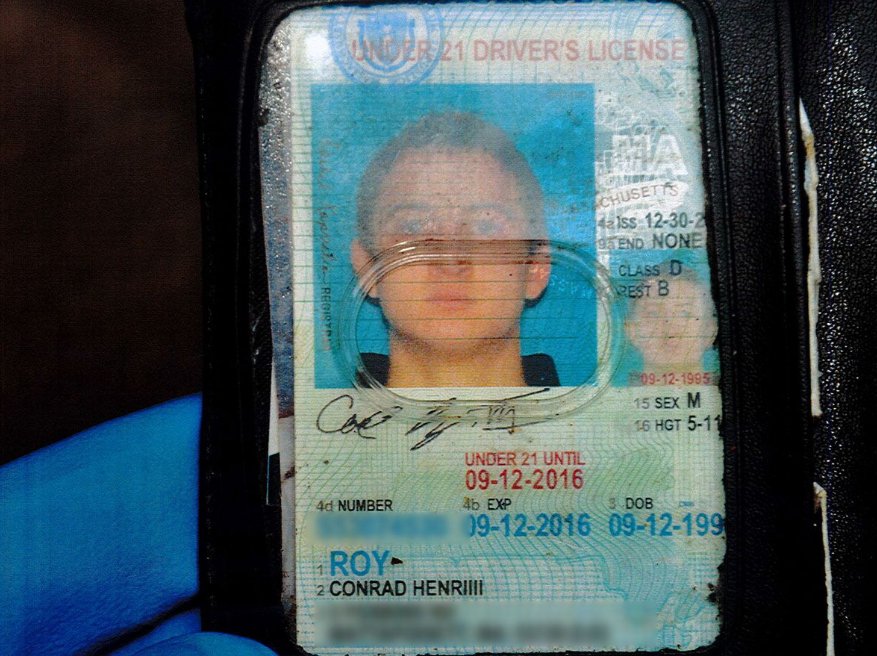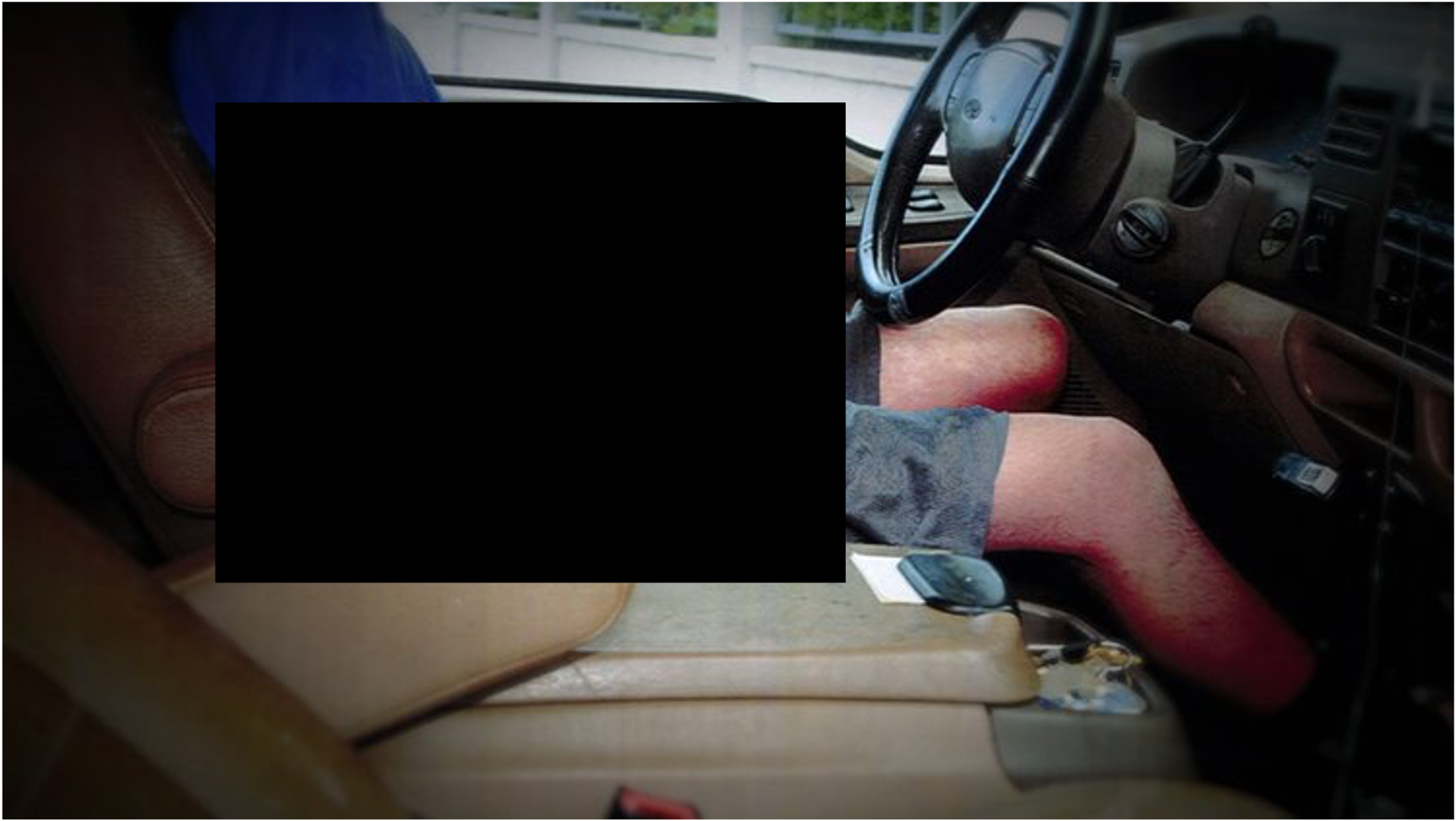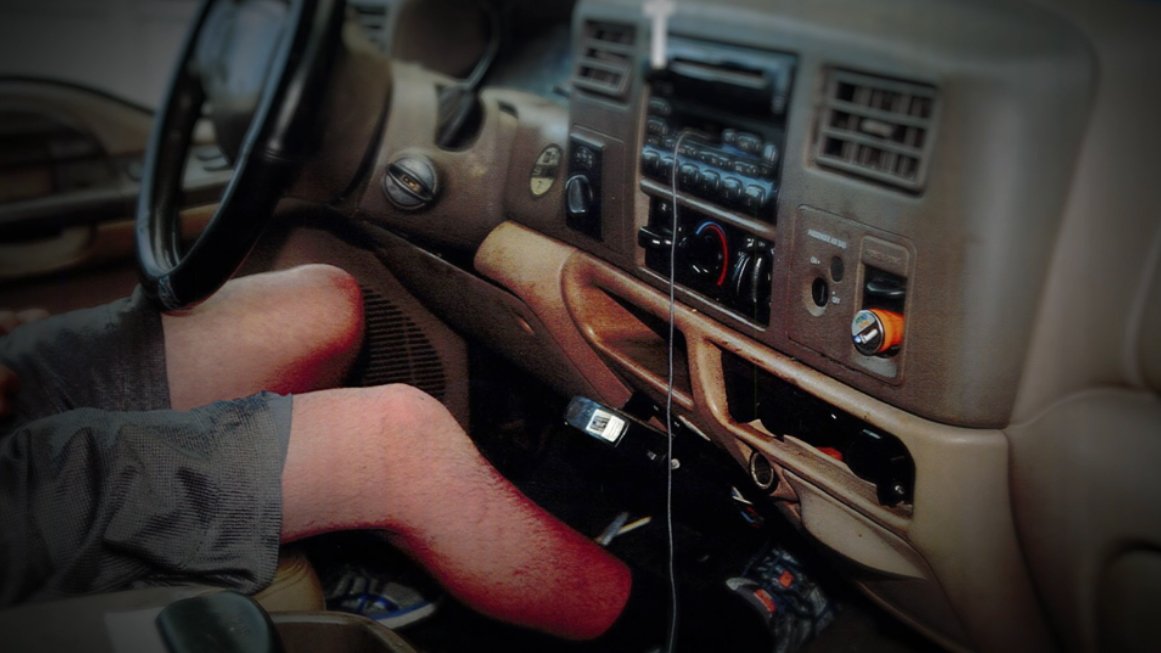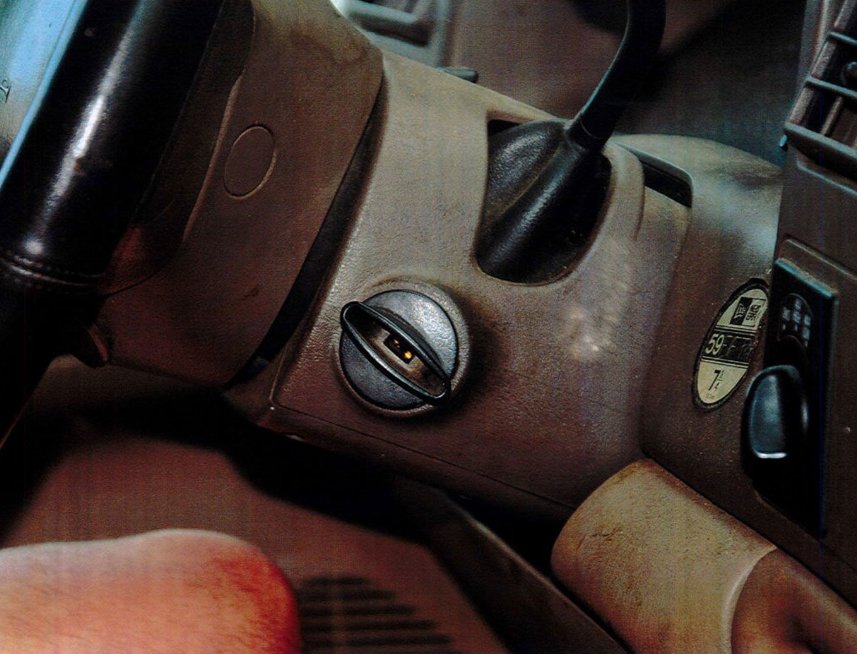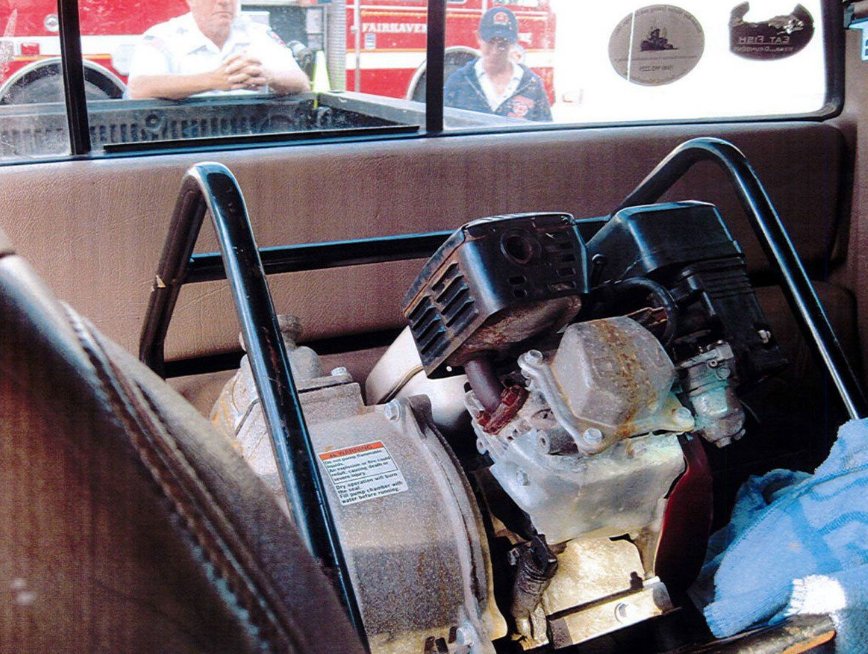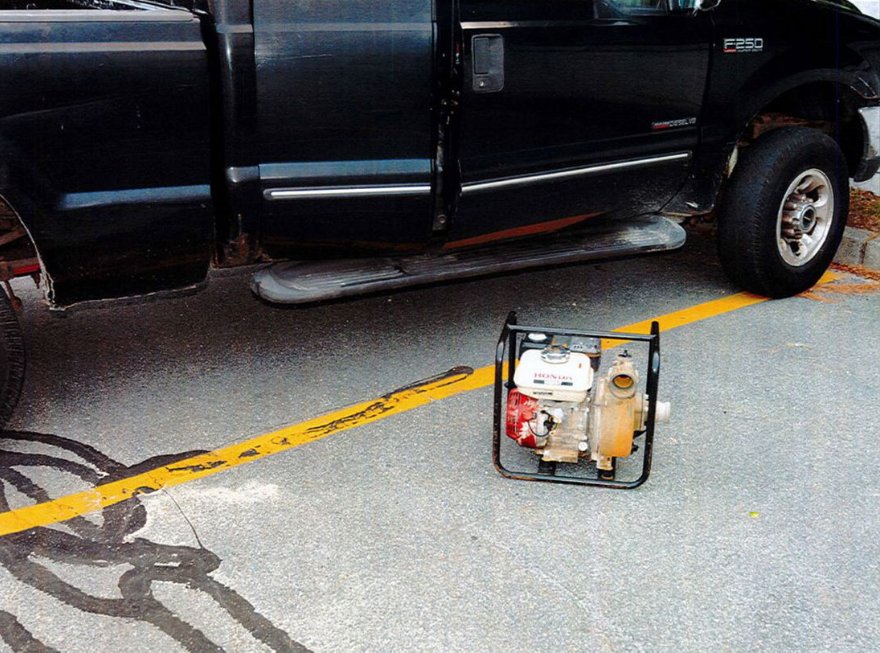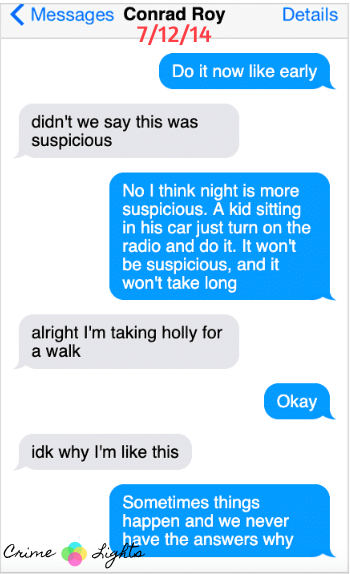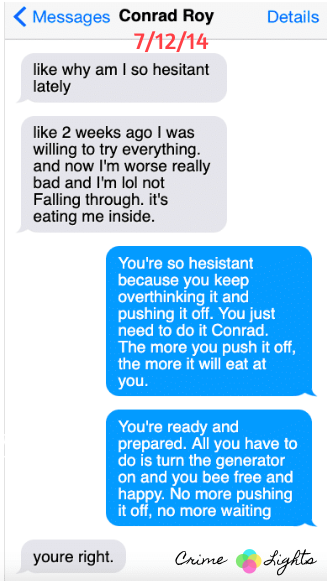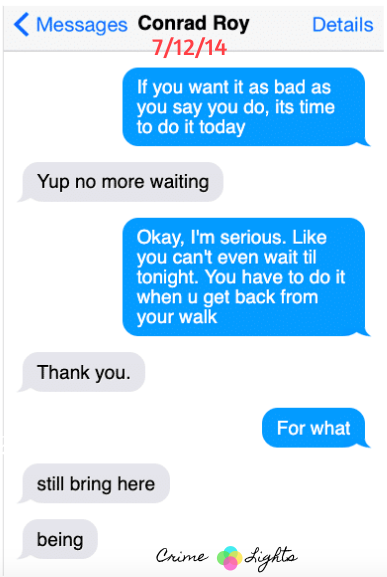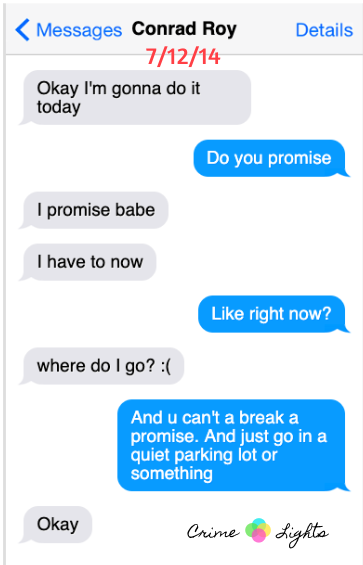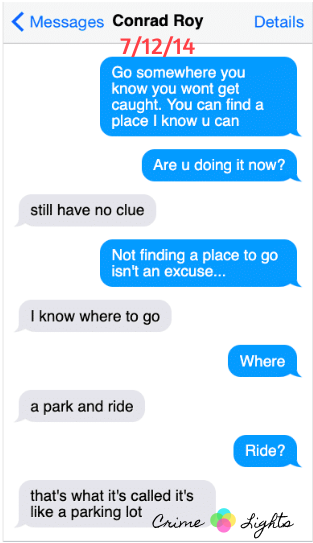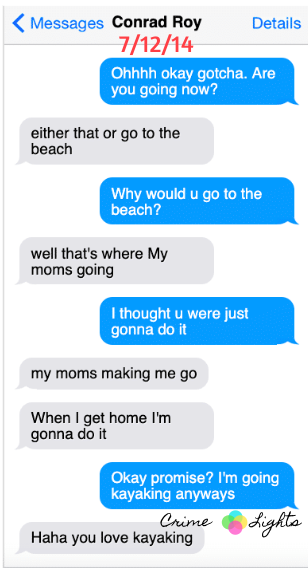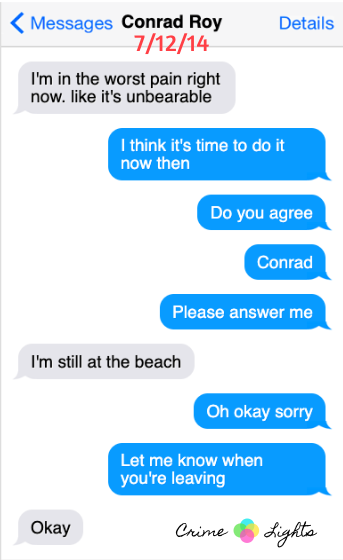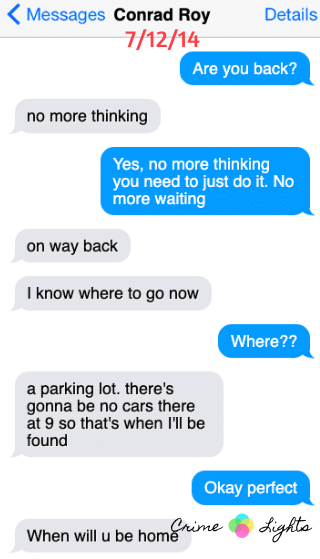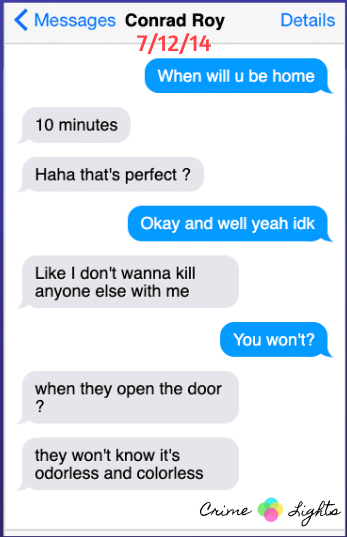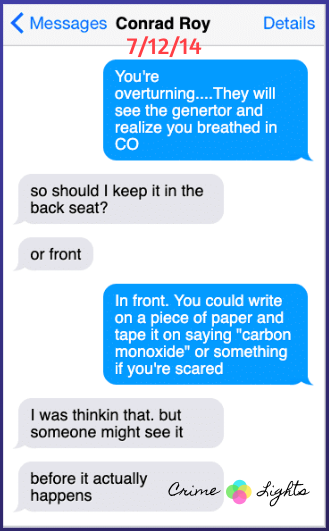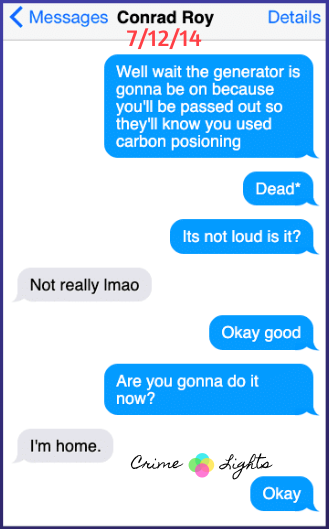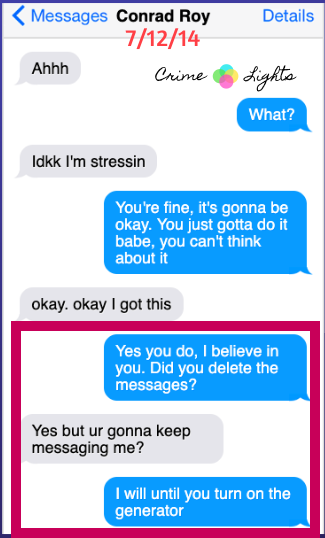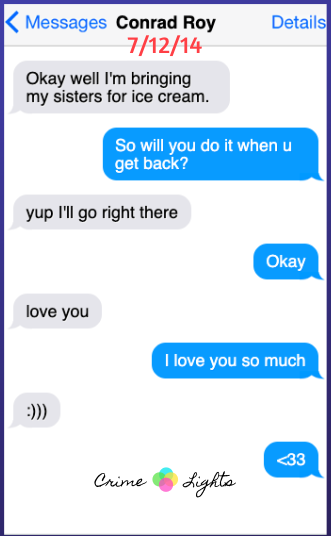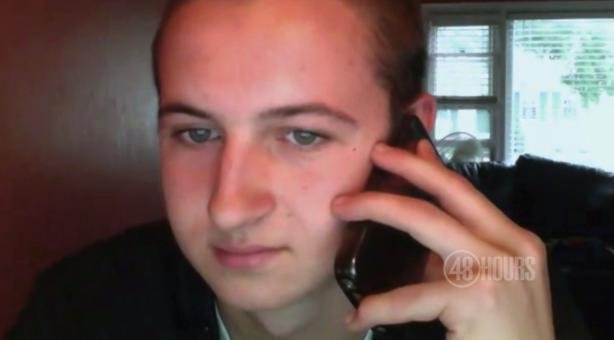WARNING: The following post depicts graphic content about Depression, Suicidal Ideation, and Suicide. Please click out of this page if you are offended by these topics. And please, if you are emotionally hurting and contemplating suicide, stop what you are doing and immediately contact The National Suicide Prevention Lifeline at suicidepreventionlifeline.org or call their number at 1-800-273-8255 for free and confidential help.
Eighteen-year-old Conrad Henri Roy III recorded the above 2-minute video of himself talking about his mental state in June, 2014. A month later he would take his own life.
## PART 1 – FACTS ##
Conrad was born in Massachusetts and was the eldest of three siblings. He was characterized by his mother as a nice and sensitive kid, and by his father as a good and hardworking employee. The mother worked at a psychiatric hospital, and the father at the family’s marine towing and salvage business. The couple separated in 2012 when Conrad was 16 years old, and it proved to be a difficult time for him as in October of that year he attempted suicide twice, once by drowning and once by overdosing on pills.
Conrad’s mental illness was treated with antidepressants which seemed to help but, as evidence would later show, he was still plagued by negative self-talk and low self-esteem. To make matters worse, in February, 2014 his father was arrested by the Mattapoisett police for assault and battery after pinning him down, his own son, and punching him repeatedly.
However, Conrad’s family and personal life looked happy and normal from a distance, with him living with his mother in Fairhaven, Massachusetts, with having a good relationship with his sisters, with working with his father, uncle, and grandfather in their family’s marine salvage business, with him being a good student and graduating from High School in June, 2014 on the Honor Roll with a 3.88 GPA, with being a good friend to his buddies, with being athletic and playing different sports, with enjoying sailboats, with getting his Tugboat Captain’s License at 18 years of age, and with him getting a new job at the Boston Duck Tours to captain their boat.
A long and prosperous life by the sea seemed to be in the cards for Conrad until his mental illness made him believe—one can only speculate—that by ending his own life it would put a stop to his unbearable emotional pain. (Depression is a common and manageable mood disorder, but it should never be underestimated and left untreated especially if the person going through it talks about suicidal ideation. Depression and suicide should not be romanticized, they are not a game, and in a worst case scenario they have the potential of killing its host.)
On Saturday, July 12, 2014 Conrad went for a walk to the beach with his mother and two sisters, and, later on when asked about it in retrospect, they claimed not seeing anything out of the ordinary with him, he looked to be in good spirits, slightly distracted on his phone but nothing to be worried about. After the beach, the three siblings stopped for ice cream and once back home, a little after 6pm, Conrad told his family he was going to head out to his friend’s house and that more likely he would not make it to dinner. He got in his truck and drove away with no plan on returning.
On the morning of Sunday, July 13, 2014, Lynn Roy, the mother, noticed that her son did not spend the night home which was unlike him so she went to the friend’s house to look for him, and nothing. Then, she went to her ex’s house, and nothing. Then, after the gravity of the situation set in her stomach, Lynn called the police to report her son missing and just a few hours later they called back notifying her that his truck had been found parked outside the local Kmart and that Conrad was inside the truck. Deceased.
The cause of death was ruled a suicide by carbon monoxide poisoning via the fumes of a portable gasoline-powered water pump.
In an unexpected move by the authorities—unexpected because it seemed to be an open-and-shot case for the family—Conrad’s phone was inspected by two Detectives and a special focus was placed on the only text message thread left behind on the device by Conrad, the one he had with a female contact. There were thousands of messages—which police forensically extracted from the smartphone—with a large number of them, words and pictures, being alarming in nature, and the Detectives agreed that had it not been for the cyberbullying inflicted from the female to Conrad, he would still—not more likely, but would still—be alive today. They took the evidence to the DA, put together the case, and on February 4, 2015, Michelle Diana Carter, age 17, was apprehended and charged with involuntary manslaughter. (From this point forward she will be referred to as the defendant.)
## PART 2 – BAD COMPANY ##
In 2012, when the Roy family vacationed in Florida while visiting relatives, Conrad met the defendant through mutual acquaintances and started a long-distance relationship with her; even though they both lived in Massachusetts, not even an hour away from each other, they only hung out in person twice (some sources say three times) over a two-year period—no pictures exist of them together as a couple—and chose to communicate exclusively via text on a daily basis, multiple times a day, talking about age-appropriate subjects—one can only assume—but also, and most importantly, as court evidence would later show, about their own struggles with mental illness.
Conrad suffered from depression and social anxiety and was taking medication for it. The defendant suffered from an eating disorder and was medicating as well.
For the majority of their two-year relationship the defendant advised Conrad to not only seek professional help, but to also go to inpatient treatment like her, but he brushed her off by saying that nothing worked for him. Then, on the last weeks of Conrad’s life the defendant turned on him, encouraging him to end his life. These were the final texts they exchanged on Conrad’s very last day alive:
## PART 3 – TRIAL ##
On June 5, 2017 the Defense opted for a bench trial, which is a trial without a jury and where the guilty/non-guilty verdict is decided solely by the Judge. This must have been a calculated move on their part as they surely must have predicted that when the Commonwealth presented the [heartbreaking] evidence to the jury, it would have made it difficult for them to keep an unbiased opinion and, more likely, ended up favoring the victim.
[Supreme Court, Commonwealth v. Carter – to view the 70-page pdf file, click HERE]
The Judge chose the verdict based on the law, not emotion, and on June 16, 2017 the defendant was found guilty of involuntary manslaughter (she was allowed to go free on bail until sentencing). On August 3, 2017 she was sentenced to serve a two-and-a-half-year term, with fifteen months to be served in the Bristol County House of Corrections, the rest of the balance suspended, and five years of probation to be served (she was allowed to go home until all of her court appeal options were exhausted).
On February 11, 2019 the defendant began serving her fifteen-month sentence. On January 23, 2020 she was released early from prison due to good behavior.
“… Sam his death is my fault like honestly I could have stopped him I was on the phone with him and he got out of the car because it was working and he got scared and I fucking told him to get back in Sam because I knew he would do it all over again the next day and I couldnt have him live the way he was living anymore I couldnt do it I wouldnt let him…”
## PART 4 – PERSONAL OPINION ##
I understand depression. I understand teenage behavior. And I can do my very best to try to understand [from a distance, years later, thanks to the evidence shared with the public] the harmful, negligent, and secretive relationship between the defendant and Conrad. What I cannot understand is how a young and athletic and strong human body can be sitting in an enclosed environment, getting poisoned by deadly fumes, having the survival instinct kick in with the lungs “screaming” for air and the legs and arms “pushing and shoving” against the “orders” from the depressed brain to “just take it” and die, by having the evolutionary physical panic reaction help the body escape and exit the enclosed deadly environment to preserve itself, for all of that to be overridden by the verbal instruction of someone else over the phone, to simply going right back into the enclosed deadly environment without the body resisting and putting up a fight at all? That is what I cannot, and will not, understand.
In my personal opinion—and I am clearly only speculating—I think that 1) Conrad took his prescription sleeping pill to aid him fall sleep in the truck and while waiting for it to take effect he spoke on the phone with the defendant (court records showed they last communicated on 07/12/14 on a phone call that started at 7:12pm which lasted 47 minutes), and that at some point before losing consciousness due to the medication he turned on the portable water pump which became his death sentence within 20 minutes.
I also think that 2) the defendant lied for whatever reason about telling Conrad to get back in the truck as he—and again, I am just speculating—might have never actually gotten out of the truck because if he had then there was no way for his survival instinct, as strong and powerful as it can be expected from a young and athletic and strong human body, to allow him going back. Survival instinct overpowers the body to preserve life, that is how it works, and that is why it works.
If I am right, it would mean that Conrad died peacefully and that the defendant lied.
If I am right, it would mean that Conrad died by his own free will and that the defendant’s lie was the one that caused her own guilty verdict.
If I am right, it would mean there were no winners on this modern-day self-destructive relationship between two young broken souls. Conrad’s depression appeared to have latched to the defendant because his depression was tricking his better judgment and made him see her, use her, as its weapon of choice –because that is what depression does, it lies.
In Love and Fear,
-Marath
© 2016-2022
